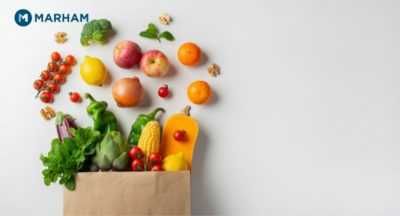People with HIV should avoid foods that can compromise their immune system and make it more difficult to manage their HIV. These foods include raw vegetables, undercooked meat, sugary drinks, and processed foods.
If you’re facing poor health symptoms due to HIV, consult an HIV doctor at your earliest possible.
Highlights
- A healthy diet improves immunity, reducing weakness in HIV patients.
- Unhealthy edibles like caffeinated, carbonated, and sugary beverages affect the digestive health of HIV-positive patients.
- Raw and unwashed foods may cause infection or organ damage, respectively.
Which foods should you avoid during HIV?
HIV viral load refers to the amount of HIV virus in the blood. It is controlled using antiretroviral therapy (ART). However, diet can also help reduce viral load and manage symptoms in patients. To maintain health, you should avoid certain foods, including;
1. Are caffeinated beverages good for HIV patients?
If you’ve tested HIV positive, limit the intake of caffeinated beverages and drinks such as tea, coffee, soda, or energy drinks.
- The excessive consumption of these beverages can raise blood pressure, increasing the risk of cardiovascular health problems. You may also experience sleep disturbances and dehydration.
- Caffeine also diminishes the effectiveness of HIV medications, resulting in poor health and an increased risk of complications.
2. Can HIV patients eat raw meat?
HIV patients should avoid eating undercooked or half-cooked meals – such as meat and seafood.
- These foods contain harmful pathogens that interfere with the body’s metabolism. They also reduce nutrient absorption, making you malnourished.
- The research study published in 2003 suggests that undercooked foods contain an abundance of harmful parasites, which cause foodborne illnesses.
Precautions! Always ask your chef to cook such foods properly by marinating with vinegar and washing them thoroughly. If you’re making such meals, wash your hands properly once done with the cooking.
3. Can people with HIV eat yogurt?
Unpasteurized food products — including milk, cheese, and yogurt (made from unpasteurized milk) are unhealthy for HIV-infected patients.
- These edibles have pathogens that slow down immune function, increasing the susceptibility to infection or organ damage caused by HIV.
- A study carried out in 2017 implies that unpasteurized dairy products support bacteria, specifically L. Monocytogenes entering the body. These bacteria cause foodborne illnesses like listeriosis.
Precaution! Drink milk or eat milk products that are pasteurized at a minimum of 160°F or 70°C for two minutes.
4. Can HIV patients eat raw vegetables?
Patients tested HIV-positive should not eat raw vegetables, especially leafy greens – including spinach, lettuce, or cabbage.
- Raw vegetables are grown using pesticides. The residue of these harmful chemicals stays even after washing, leading to neurological damage.
- One study claims that HIV patients should avoid raw vegetables, especially tomatoes, cucumbers, and sprouts, as they can grow harmful bacteria in warm conditions. These bacteria can enter the body and cause gastrointestinal issues, such as diarrhea.
Precaution! Always eat cooked vegetables, or even if you’re eating them in raw form, wash them properly.
5. Can HIV patients have fresh fruit?
Eating fresh fruit during HIV is a good diet. However, HIV patients should avoid eating unwashed fruits, as they may contain traces of allergens, which trigger food allergies. They also carry dirt or harmful chemicals, which can cause oral infections.
- Research conducted in 2015 claims that unwashed fruit contains unhealthy bacteria, especially E. coli, which can cause multiple health conditions — like urinary tract infection, meningitis, tuberculosis, or pneumonia, impacting overall health.
Precaution! Always wash fruits using warm water or vinegar before eating.
6. Is it okay to consume sugary and fatty foods with HIV?
HIV patients should avoid the excessive intake of sugary or fatty foods such as cakes, doughnuts, ice cream, ghee, palm oil, or coconut oil.
- Such meals can affect healthy gut bacteria, which reduces digestion and increases gastrointestinal issues.
- They also increase body inflammation, which intensifies joint pain and stiffness.
- A research study published in 2018 suggests that a higher intake of sugary or fatty foods increases the risk of developing dyslipidemia and cardiovascular diseases. Such edibles may also result in weight gain.
Precaution! You should ensure your diet contains low amounts of artificial sucrose and trans or saturated fats.
Conclusion
HIV patients should get a diet plan containing fresh and healthy foods to improve their health. Such a healthy diet will help reduce the risk of developing acquired immune deficiency syndrome (AIDS), which is caused by human immunodeficiency virus infection. Avoid caffeinated beverages, and sugary or fatty foods to maintain health.
Consult an HIV doctor to have a healthy nutrition plan, which can help you deal with HIV symptoms.
FAQs
1. What is a bad viral load for HIV?
HIV viral load above 10,000 copies/mL is considered as high, whereas one below 1,000 copies/mL is low.
2. Is bread good for HIV patients?
HIV patients should eat Vitamin B-rich whole wheat bread during breakfast or when hungry, as it promotes health.
3. Can an HIV patient eat rice?
Foods that are rich in fats, sugars, or starchy, especially rice should be avoided during HIV. Such foods can result in weight gain, leading to other health issues.

